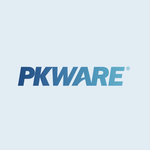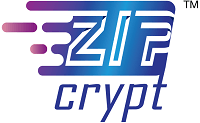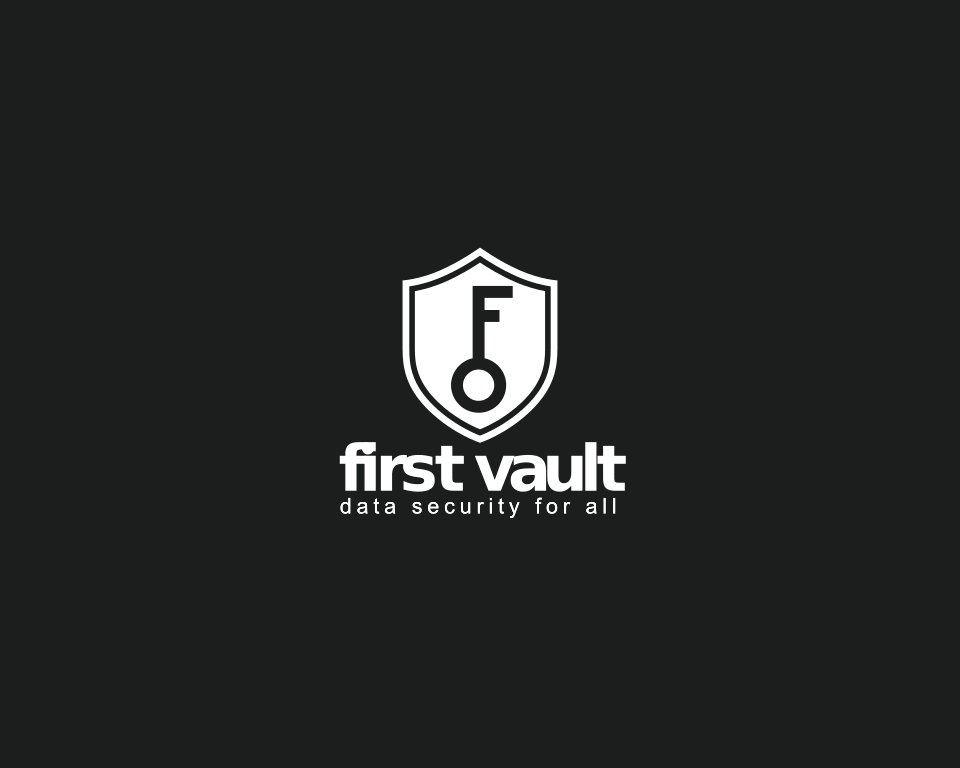What Is Encryption Software?
In today's digital world, encryption software is an essential tool for protecting sensitive data. This kind of software employs sophisticated algorithms to convert data or plain text into ciphertext, or coded format, which prevents anyone without the right key or password from reading it. This procedure, known as encryption, is essential for shielding data from theft, alteration, and unwanted access.
To put it another way, encryption software functions as a digital lock that renders your original data unintelligible, making it hard for government organizations, cybercriminals, or other prying eyes to decode it without the encryption key. The information can only be decoded and accessed by the designated recipient who has the right key or password.
The market is filled with many kinds of encryption software, such as disk encryption, network encryption, email encryption, and file encryption. Depending on the degree of protection needed, each category employs distinct methods and procedures to protect data. Strong encryption algorithms like AES 256-bit, compatibility across various platforms and devices, automatic file or folder encryption, safe file sharing, and user-friendly interfaces are some typical characteristics to search for in encryption software.
Sensitive data, including private correspondence, financial records, trade secrets, and personal information, must be protected with encryption software. Businesses that handle sensitive data and are more vulnerable to hackers should pay particular attention to this. Purchasing strong encryption software is a wise move for both individuals and companies since it gives your data an additional layer of protection against potential threats. Encryption software is an essential tool in today's digital world, regardless of whether you're wanting to increase the data safety of your company or secure your personal files.
What Are The Recent Trends In Encryption Software?
Strong and dependable encryption software is now more important than ever as a result of the rapid advancement of technology. Sensitive data and communications are protected by encryption software, which is now a necessary tool for both individuals and companies. The market for encryption software has grown significantly in response to the increase in cyberattacks and data breaches, and this trend is anticipated to continue in the years to come. We will examine the most recent developments in encryption software in this buyer's guide to assist you in selecting the best option for your requirements.
1. A Move To Encryption Based On The Cloud: The move to cloud-based encryption software is among the most important recent developments. More and more businesses are using cloud-based encryption to safeguard their data as a result of the growing popularity of remote work and cloud services. While retaining robust security safeguards, these solutions provide the ease of viewing encrypted data from any location.
2. End-To-End Encryption Adoption: Demand for end-to-end encryption has grown along with worries about data privacy. End-to-end encryption offers a higher level of security and privacy by guaranteeing that only the sender and recipient of a message may access the encrypted contents. The growing usage of messaging apps has fueled this trend and brought attention to the necessity of safe communication.
3. Multi-Factor Authentication Integration: A common technique to improve security and stop unwanted access to private information is multi-factor authentication, or MFA. MFA integration is currently a common feature of encryption software solutions, adding an additional degree of security to encrypted data. As businesses prioritize data security and look for ways to improve their encryption techniques, this trend is anticipated to continue.
4. Quantum-Resistant: Encryption is used Concern over the weakness of conventional encryption techniques is growing as the possibility of quantum computing becoming a reality approaches. Quantum-resistant encryption, which employs sophisticated mathematical methods to shield data against quantum attacks, is becoming more popular as a result. Although this movement is still in its infancy, it is anticipated to pick more steam as quantum computing technology advances.
5. A Greater Emphasis: On the user experience In the past, encryption software was frequently thought to be difficult to use and complex, but more recently, the emphasis has been on making the user experience better. Nowadays, a lot of encryption systems include simplified procedures and user-friendly interfaces, which make it simpler for non-technical users to set up and maintain encryption. As encryption software becomes more widely available, this trend is anticipated to continue.
Benefits Of Using Encryption Software
Businesses and individuals that want to shield critical information from unwanted access must have encryption software. In the digital world of today, when data is transferred and stored continuously, encryption software adds an additional degree of protection for important information. When choosing what to buy, you should take into account these important advantages of using encryption software.
1. Security And Protection Of Data: Protecting sensitive data from hackers, cyberattacks, and data breaches is the primary goal of encryption software. It makes it impossible for unauthorized parties to decode the data by transforming plain text into unintelligible code using sophisticated algorithms. This guarantees the confidentiality and security of your data, providing you with the assurance that your important information is protected from prying eyes.
2. Adherence To Rules Businesses: Must adhere to stringent laws in a number of industries, including healthcare and banking, to protect sensitive data. There are severe consequences and reputational harm associated with breaking these rules. By offering a safe method of storing and sending sensitive data, encryption software assists you in meeting these criteria and guarantees that your company complies with industry standards.
3. Protecting Individual Data: Identity theft is a serious worry given the increase in online transactions and the storage of personal data, including banking and credit card information. This private data can be safeguarded by encryption software, which makes it unintelligible to those lacking the necessary key or password. This implies that your personal information is protected against identity thieves in the case of a data breach.
4. Adaptable Use Encryption: software can be used on devices like smartphones, tablets, and USB drives in addition to laptops and desktop computers. This gives you the freedom to work while on the road without sacrificing data security by enabling you to protect your data no matter where it is kept or accessed.
5. Economical Resolution: Even while buying encryption software could be expensive, it is ultimately a cost-effective solution. There is a chance that a cyberattack or data breach will cause serious financial losses as well as harm to your company's brand. Purchasing encryption software can help reduce these dangers and possibly prevent you from having to pay hefty future fees.
Important Factors To Consider While Purchasing Encryption Software?
To pick the greatest choice for your requirements, it's important to take into account a number of variables while choosing to buy encryption software. The main factors you should consider before purchasing encryption software are described in this buyer's guide.
1. Security Features: The degree of security offered by the software is the most important consideration. To safeguard your private data, look for features like data backup, multi-factor authentication, and robust encryption techniques.
2. Compatibility: Verify that the encryption program is compatible with your operating system and other applications before buying it. By doing this, all future compatibility problems will be avoided.
3. User-Friendly Interface: Because encryption software might be complicated, it's critical to find an interface that is simple to use and navigate. In the long run, this will save you frustration and time.
4. Integration: Verify that the encryption program enables integration with a range of platforms and applications if you intend to utilize it with other systems. This will guarantee smooth data transport and reduce workflow interruptions.
5. Scalability: Your company's data security requirements may grow as it expands. Select scalable encryption software so you can quickly add features or modify it as your needs change.
6. Customer Help: Having dependable customer help from the software vendor is essential in the event of any problems or inquiries. To get help when you need it, look for resources like knowledge bases, phone support, and live chat.
7. Reputation And Reviews: Before investing in encryption software, do your homework. Examine user feedback and the software's standing in the marketplace. This will help you make an informed choice by providing you with information about other users' experiences.
8. Cost: The cost of encryption software might vary, so it's important to take your budget into account while making sure you're obtaining the functionality and security level you require. Take into account the price of continuing maintenance and updates as well. As you can see, while buying encryption software, there are a number of important things to take into account. By keeping these things in mind, you'll be able to make an informed choice that will best safeguard your private information.
What Are The Key Features To Look For In Encryption Software?
A vital tool for safeguarding sensitive data, such as bank records, company secrets, or personal information, is encryption software. With so many options on the market, selecting the best encryption software for your requirements can be difficult. Here are the essential characteristics to search for in encryption software to make the process easier:
1. Robust Encryption Algorithms: The main objective of encryption software is to protect data by using intricate mathematical formulas. The strength of the encryption algorithms is a crucial factor to take into account while assessing encryption software. Seek out software with at least 128-bit encryption that makes use of industry-standard algorithms like RSA (Rivest-Shamir-Adleman) or AES (Advanced Encryption Standard).
2. User-Friendly Interface: Non-technical people may find encryption software difficult to operate. To guarantee simplicity of use, look for software with an intuitive user interface and straightforward navigation. Additionally, this will lessen the possibility of human error, which could jeopardize the encrypted data's security.
3. Compatibility: It is essential to select encryption software that is compatible with the systems you use because data is now stored and accessible from a variety of platforms and devices. Make sure the program can be easily integrated with your current systems and devices, regardless of whether it is desktop, mobile, or web-based.
4. Multi-Layered Protection: To safeguard data from all sides, an effective encryption program should provide multi-layered protection. This covers functions like two-factor authentication, password protection, and the capacity to assign varying degrees of access to various people. An extra degree of protection can be offered by sophisticated solutions like biometric authentication.
5. Data Recovery: Having a backup plan for encrypted data is crucial in case of a system failure or data loss. To be sure that your encrypted data can be easily recovered, look for software that provides data recovery features like cloud backup or an emergency decrypt feature.
6. Compliance And Certifications: Businesses must select encryption software that complies with the ever-toughening data privacy laws and compliance standards. Seek software recognized by respectable agencies like HIPAA (Health Insurance Portability and Accountability Act) or FIPS (Federal Information Processing Standards).
7. Customer Help: Because encryption software can be complicated, having timely and dependable customer help is essential in the event that problems arise. To guarantee timely assistance when required, look for software that provides extensive customer care, including live chat, phone, and email support.
Why Do Businesses Need Encryption Software?
Businesses of all sizes are constantly at risk from data breaches and cyberattacks in today's digital environment. In fact, a 2020 IBM study found that the average cost of a data breach for a US organization was an astounding $8.64 million. In order to protect sensitive data and a business's bottom line, encryption software is essential in this situation.
Simple, readable data is transformed into a code by encryption software using intricate algorithms, rendering it unintelligible to anyone lacking the decryption key. This keeps the data safe by guaranteeing that it cannot be read without the key in the event that it is intercepted. Businesses want encryption software primarily to safeguard their sensitive information against hackers and illegal access.
This covers private client data, financial information, personnel files, and intellectual property. Businesses may reduce the danger of a data breach, prevent expensive legal repercussions, and preserve their brand by encrypting this data. Additionally, a lot of companies and nations have laws requiring encryption for specific kinds of data. For instance, in order to protect patient privacy and security, healthcare institutions are required by the Health Insurance Portability and Accountability Act (HIPAA) to encrypt patient data.
Additionally, encryption software assists companies in adhering to global data protection regulations, such as the European Union's General Data Protection Regulation (GDPR). Businesses that operate internationally must have encryption software since noncompliance with these requirements can result in harsh penalties. Encryption software not only protects against external cyber threats but also prevents internal data leakage.
Employees may mistakenly or purposely divulge private information that could be detrimental to the business. An additional degree of security is provided by encryption, which prevents data from being accessed without the required authorization even in the event that it is spilled. Additionally, encryption software might give companies a competitive edge. Customers are growing more worried about the security of their data in today's industry.
By using encryption, companies can reassure clients that their data is safe, fostering loyalty and confidence. In conclusion, companies require encryption software to safeguard sensitive information, adhere to legal requirements, stop internal data breaches, and obtain a competitive advantage. Businesses must invest in encryption software to protect the security and privacy of their data in light of the ongoing threat of cyberattacks.
How Much Time Is Required To Implement Encryption Software?
The complexity of the software, the size of the company, and the degree of security and customization required all affect how long it takes to implement encryption software. However, the average time to fully implement encryption software can range from a few days to several weeks. First off, the software's complexity has a significant impact on how long it takes to implement.
It goes without saying that implementing more complex encryption software with numerous features and integrations will take longer than simpler ones. To prevent implementation delays, it is advised to carefully evaluate the software's capabilities and compatibility before making a purchase. Second, the implementation time is also influenced by the organization's size.
Setting up encryption software will take less time for smaller businesses with fewer devices and systems than for larger corporations. Accurately estimating the implementation time requires a thorough understanding of the number of devices and systems that require encryption. Thirdly, the implementation schedule may also be impacted by the degree of security and customisation needed.
Higher security and customisation encryption software may take longer to install since it requires setting up and testing several options to suit the demands of the company. Employee training on the proper usage of encryption software is a crucial component of its implementation. The implementation procedure should take place either before or during this training, which could extend the timetable.
It's important to remember that the implementation process could also involve other duties like data migration and backup, system and network compatibility checks, and extensive testing to make sure the software is operating as intended.
What Is The Level Of Customization Available In Encryption Software?
The degree of customisation offered by encryption software is one of the most important things to take into account. This is a crucial feature for any prospective purchaser to take into account since it pertains to the software's adaptability to particular requirements and tastes. A more secure and individualized approach to data security is made possible by encryption software customisation, which is one of its primary advantages.
In order to best meet their data security requirements, users can select particular algorithms, key lengths, and other parameters. Additionally, customisation can improve the software's usability and efficiency. The software can assist save time and streamline operations by being able to be customized to fit certain workflows and processes.
Larger companies with intricate data security needs may find this to be very helpful. Depending on the particular software, several levels of customisation may be provided. While some options can have more limited alternatives, others might offer a greater variety of settings and combinations. To find the degree of customization that best suits their demands, consumers should carefully investigate and contrast various software solutions.
It's also important to keep in mind that there may be a complexity trade-off associated with greater personalization. To effectively exploit more sophisticated customization possibilities, a greater degree of technical know-how and training can be needed.
Which Industries Can Benefit The Most From Encryption Software?
One useful method for preventing sensitive data from getting into the wrong hands is encryption software. Every industry can profit from the use of encryption software, but some are more vulnerable than others and stand to gain the most from its application. The following sectors stand to gain the most from encryption software:
1. Healthcare: A lot of sensitive data, including patient records, medical histories, and insurance information, are handled by the healthcare sector. Because of this, it is a popular target for cyberattacks. By guaranteeing HIPAA compliance and preventing data breaches, encryption software can secure patient data.
2. Finance: Financial companies handle extremely sensitive data, such as their clients' financial and personal information. Both the company and its clients can be safeguarded by using encryption software to assist secure financial transactions and stop hackers from accessing private information.
3. Government: Government organizations deal with a lot of private information, including sensitive citizen personal data and classified papers. Data and systems used by the government can be protected against cyberattacks by using encryption software.
4. Legal: Case files, contracts, and court rulings are just a few examples of the private client information that law companies frequently handle. Sensitive information can be shielded from prying eyes and data breaches can be avoided with encryption software.
5. Education: As remote learning has grown in popularity, education has also gone more digital, with a significant quantity of student data being kept online. Students' and employees' safety and privacy can be guaranteed by using encryption software to safeguard this data and stop illegal access or data breaches.
6. Technology: Due to its continuous innovation and production of new technologies, the tech sector is a prominent target for corporate espionage and intellectual property theft. Businesses can maintain an advantage over rivals by using encryption software to protect intellectual property, trade secrets, and important data.
Conclusion
To sum up, encryption software is an essential instrument for safeguarding private data and sensitive information. We have examined the many features and aspects to take into account when choosing the best software for your requirements in this buyer's guide. Finding out how much encryption and security measures the software offers is crucial first and foremost.
The software's compatibility with various devices and operating systems is also a crucial factor, particularly if you have a multi-device setup. Ease of use, integration potential, and the availability of extra security measures like file shredding and two-factor authentication are other important factors to take into account. The vendor's standing and degree of customer service should also be taken into account.
To make sure you are getting the best value for your money, you should also thoroughly examine the pricing structures of different software solutions. Furthermore, reading reviews and asking reliable people for advice can give you important information about the software's dependability and effectiveness. The ideal encryption program will ultimately rely on your unique requirements and situation.
You may make an informed choice and select software that satisfies all of your encryption requirements by keeping these considerations in mind and carefully examining the options available. We hope that this tutorial has aided you in your quest for a trustworthy and efficient encryption program.






















